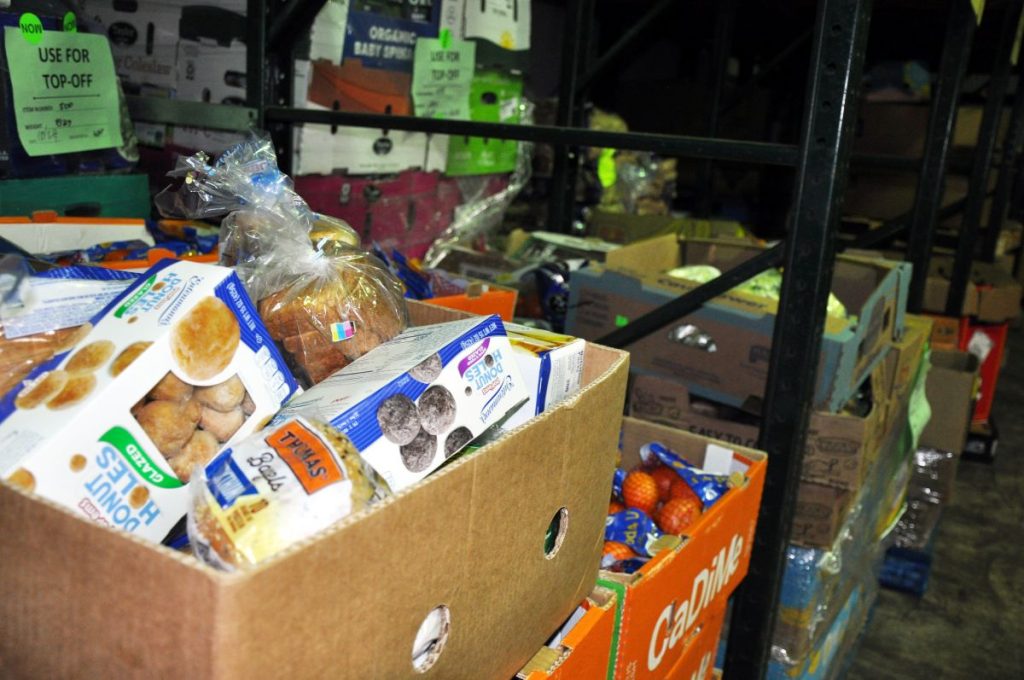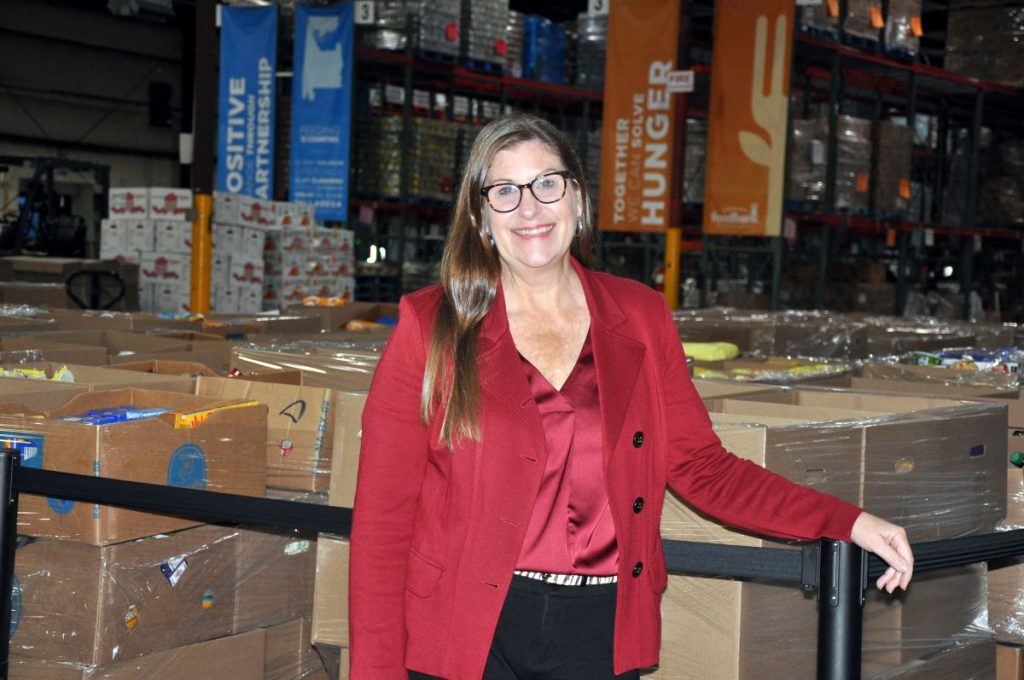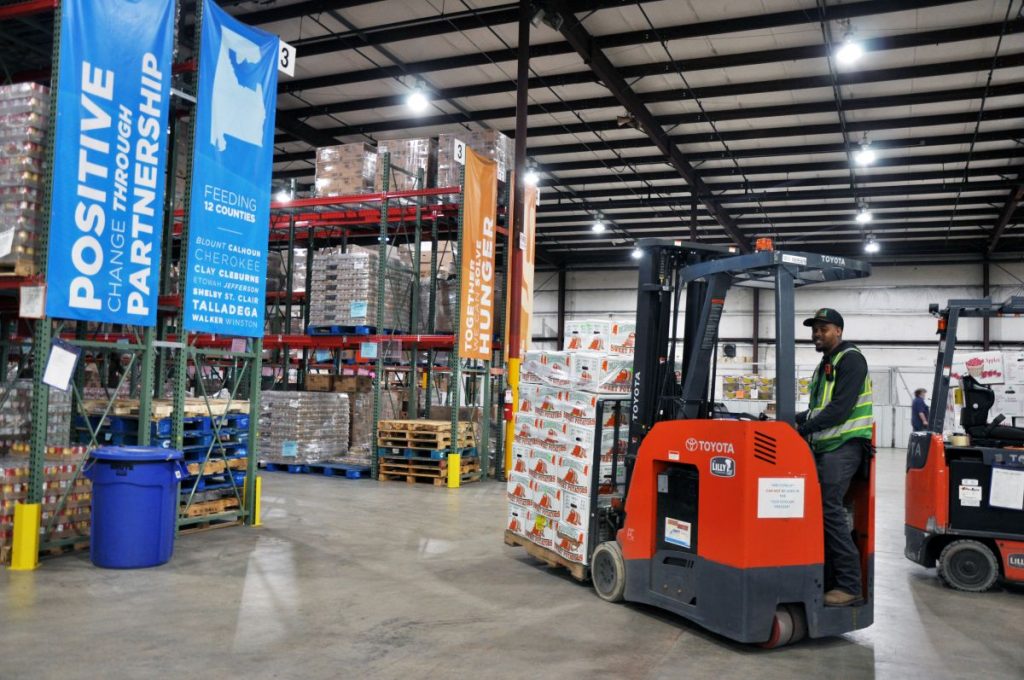Economy
SNAP Suspension Could Escalate Hunger Crisis in Birmingham, Food Bank Leaders Warn

With federal food assistance slated for suspension Saturday as the government shutdown drags on, food bank leaders and anti-hunger advocates warn of an escalating food insecurity crisis in the Birmingham metro area.
“We’re actually treating this like a disaster,” said Nicole Williams, chief executive of the Community Food Bank of Central Alabama. “If you have a tornado or natural disaster, someone’s hurt, potentially, and lost their home. This is not that kind of disaster, but it’s a disaster if you have this many thousands of people that need food.”
In Jefferson County, 13.3% of households receive benefits from the Supplemental Nutrition Assistance Program, or SNAP, formerly called food stamps, according to the Food Research & Action Center.
The anticipated lapse in federal food assistance for approximately 736,000 Alabamians comes at particularly difficult time. The budgets of food banks and other organizations that help feed people are already strained due to federal funding cuts earlier this year and more need created by the economy.
Additionally, about 16,000 federal workers in 12 central Alabama counties are missing paychecks during the government shutdown. Williams said her group has done targeted food distributions for Transportation Security Administration employees, air traffic controllers, Air National Guard members, Customs officials, and employees at Talladega National Forest and a corrections facility in Talladega.
Despite these challenges, the food bank has reduced food distribution and is serving fewer people in 2025 because of the elimination of one U.S. Department of Agriculture program and cuts to two others. Together, those three programs accounted for 28% of food the organization distributed in 2024, she said.
“We lost food from the USDA, and now there are a lot more people in our line based on what’s happening in the government,” Williams said. “So, it’s almost like a perfect storm.”
Representatives for multiple organizations said they are reaching out now to ask the public for donations to help keep people fed this month and into next year.
SNAP Cut Unprecedented
The modern federal food assistance program began in 1961 and has not been suspended during any other government shutdown. Previous presidential administrations — including the first Trump administration — have used a contingency reserve or other available funding to continue providing SNAP funds to states, which administer the program.
But on Oct. 10, the USDA sent a letter to states telling them not to distribute November benefits due to insufficient funds. While some states are scrambling to fill the gap for their residents, Gov. Kay Ivey has refused Democratic state legislators’ request to call a special session and has said Alabama does not have the money to do Congress’ job.

In Alabama, a large portion of SNAP households are families that include children or a person with a disability, said LaTrell Clifford Wood, hunger policy advocate for Alabama Arise.
Approximately 40% of SNAP beneficiaries in Alabama are children, according to the Food Research & Action Center, and close to one in four children in the state is food insecure, Wood said, versus about one in six adults.
“We will see children particularly impacted as we know food insecurity disproportionately impacts children in our state,” Wood said.
How Food Banks Are Preparing
Williams said the Community Food Bank of Central Alabama has purchased additional food on faith that the community will step up with donations to reimburse the organization for costs that exceed its budget. The food bank is based in Birmingham and distributes about 2 million pounds of food per month across 12 counties through 300 partner agencies, 130 of them in Jefferson County.
“For a year now, we’ve been worrying about a government shutdown,” Williams said. “This time it actually happened.”
Two or three weeks ago, staff at the food bank started taking action.
“So we started ordering little bits of food here and there, produce and protein, things that we knew were going to be important to people, so that this week, we could start doing some distributions,” Williams said.
The need for food will increase toward the end of November because benefits are paid on staggered dates.
Magic City Harvest — which provides an average of more than 1,800 meals a day, mainly by picking up and distributing fresh food from restaurants, caterers and grocery stores — also is asking the community to make donations so the organization can purchase food, said Suzanne Wright, executive director.
“Since the beginning of this year, we’ve been writing grants for money to purchase food, knowing that by the end of this year and deep into next year, it’s going to be a major issue,” Wright said. “And if we could go ahead and plan and try to get a little bit ahead of it, not knowing the exact consequences, then that’s what we need to do.”
What food banks need the most is cash.
“We need funding,” Wright said. “We need money to help purchase the food that will complement the food that we already get donated.”
While nonperishable food donations are helpful, food banks can stretch dollars further by buying in bulk and at discounted prices.
Wright said Magic City Harvest does need more restaurants and professional caterers to donate leftover food, but the organization cannot accept prepared food donations from private individuals because its safety can’t be verified.
One thing people individually can do to help is to check on their neighbors, Williams said.
“You don’t know who it’s going to be,” Williams said. “Maybe someone living next door to you is on SNAP benefits or maybe they’re a TSA agent. Either way, people deserve food.”

Another way to get involved in alleviating hunger is through the policy side, by contacting state and federal officials, said Wood with Alabama Arise, a nonprofit that advocates for public policies aimed at improving the lives of people affected by poverty.
Alabama Arise has set up a form for emailing U.S. Secretary of Agriculture Brooke Rollins with a message asking her to release SNAP contingency funds to help cover November benefits.
It also is planning in-person and virtual town hall meetings to raise awareness about the expected suspension of SNAP benefits in November and long-term changes to SNAP regulations that are on the horizon.
Permanent SNAP Cuts Could Be on the Way
Wood said the government shutdown’s impact on SNAP could foreshadow what’s to come when SNAP reductions and more stringent eligibility requirements under the One Big Beautiful Bill Act kick in in coming years. The act makes three major changes to SNAP.
Beginning in 2026, it will require states to cover 75%, rather than 50%, of SNAP administrative costs.
Starting in 2027, states will have to pay a portion of SNAP benefits, which currently are 100% federally funded, based on the state’s “error rate” — a measure of under- and overpayments.
According to Alabama Arise, if state lawmakers don’t pony up the estimated additional $207 million, the state would have to reduce the number of SNAP participants or opt out of the program.
“Our legislators are aware of the cuts that are coming from and as a result of the Big Beautiful Bill Act and the price tag on those cuts,” Wood said. “My hope is that they consider the shutdown as kind of a preview of what could potentially happen if we were not to fund those programs.”
Veterans, people 55 and older, adults in households with children 14 or older, young adults who aged out of foster care, and those experiencing homelessness might have to comply with more stringent work reporting requirements. Experts say these reporting requirements could be barriers for people who are eligible for benefits.
It’s unclear when the new work reporting requirements will take effect because states are waiting on direction from USDA, Wood said.
The act also will prohibit the federal government from changing the amount of SNAP assistance except to keep up with inflation. This change will reduce SNAP assistance over time, according to Alabama Arise.
If you are in need of food assistance, you can dial 211 on your phone or search an online database to find the nearest resources.


